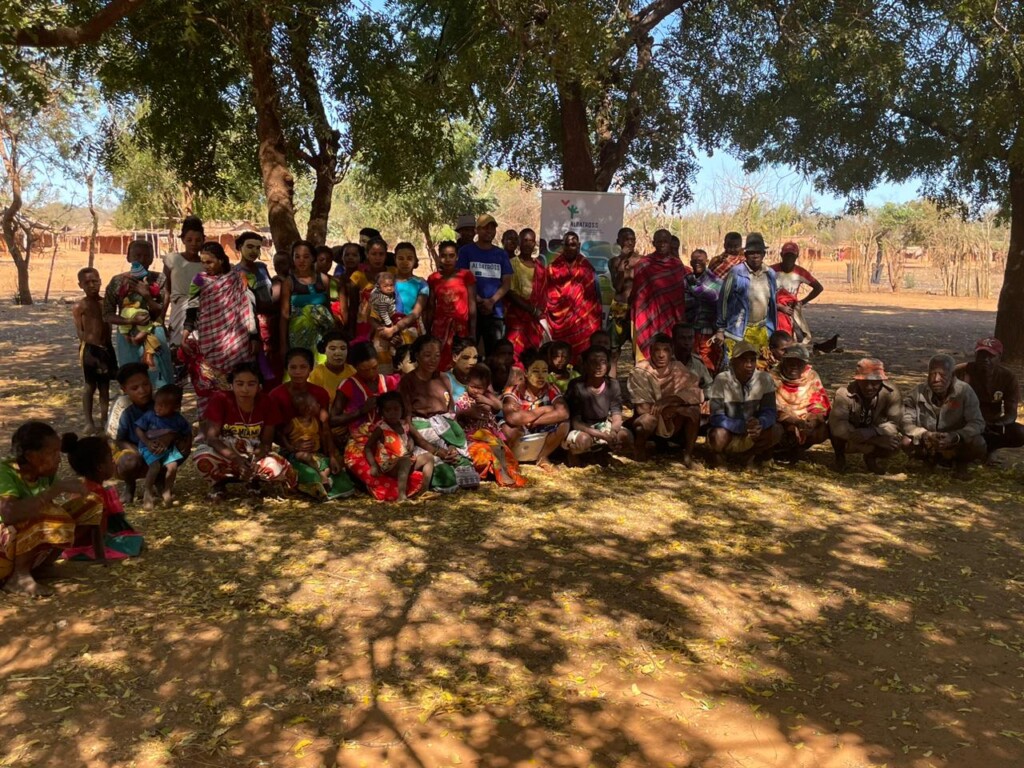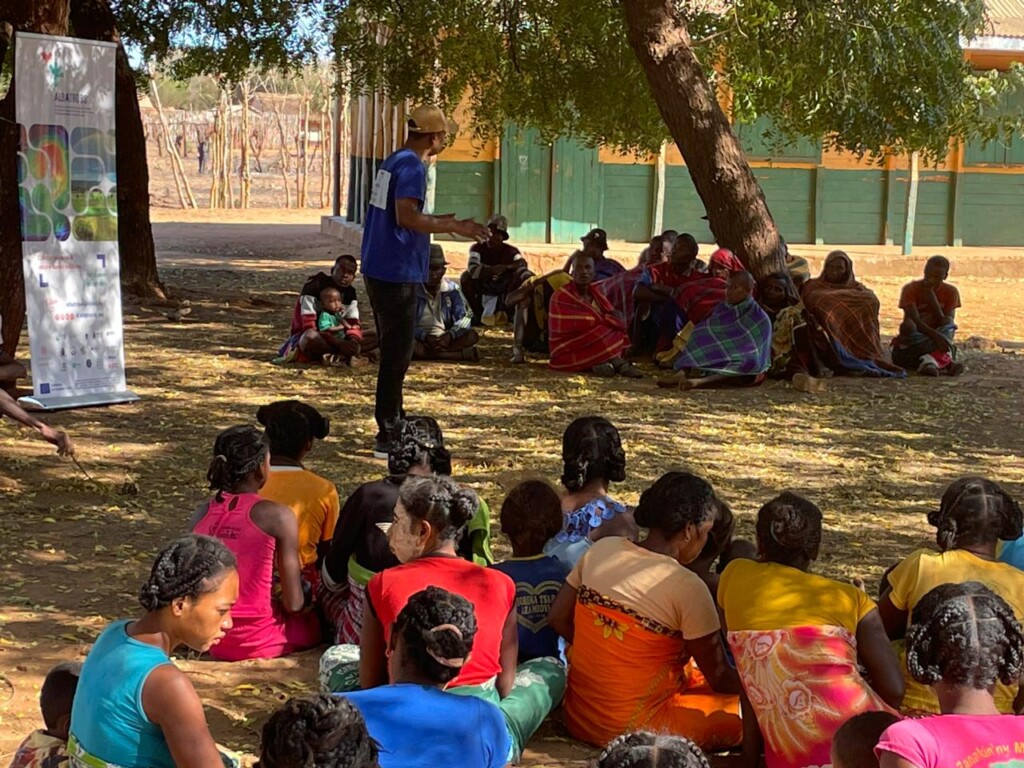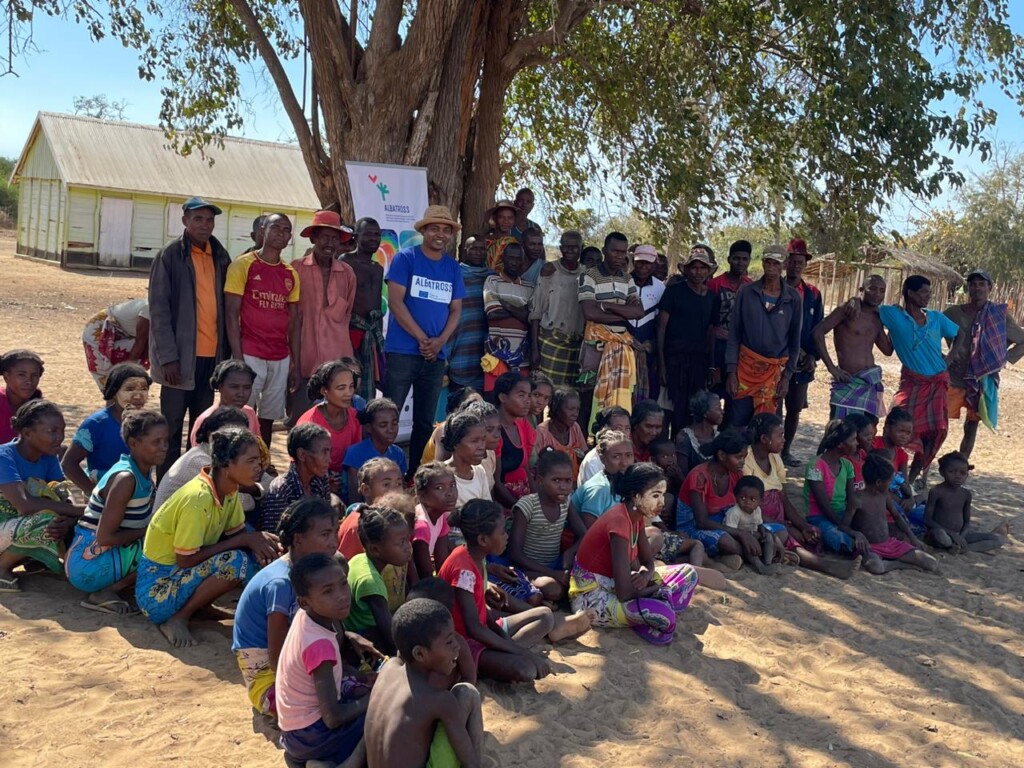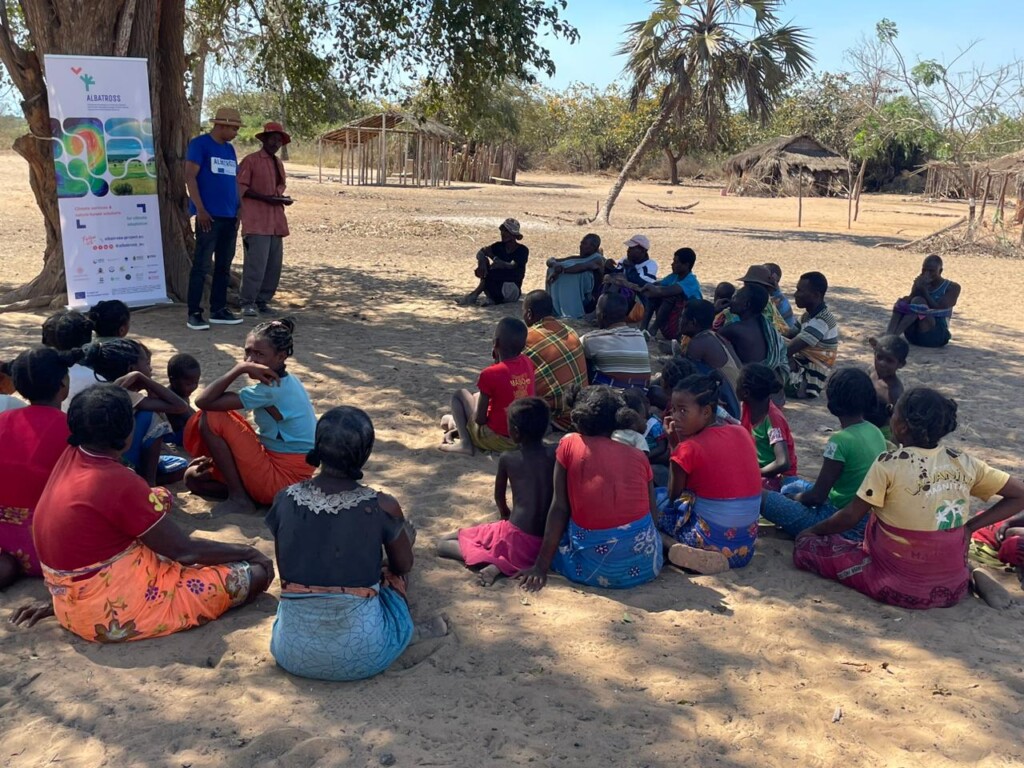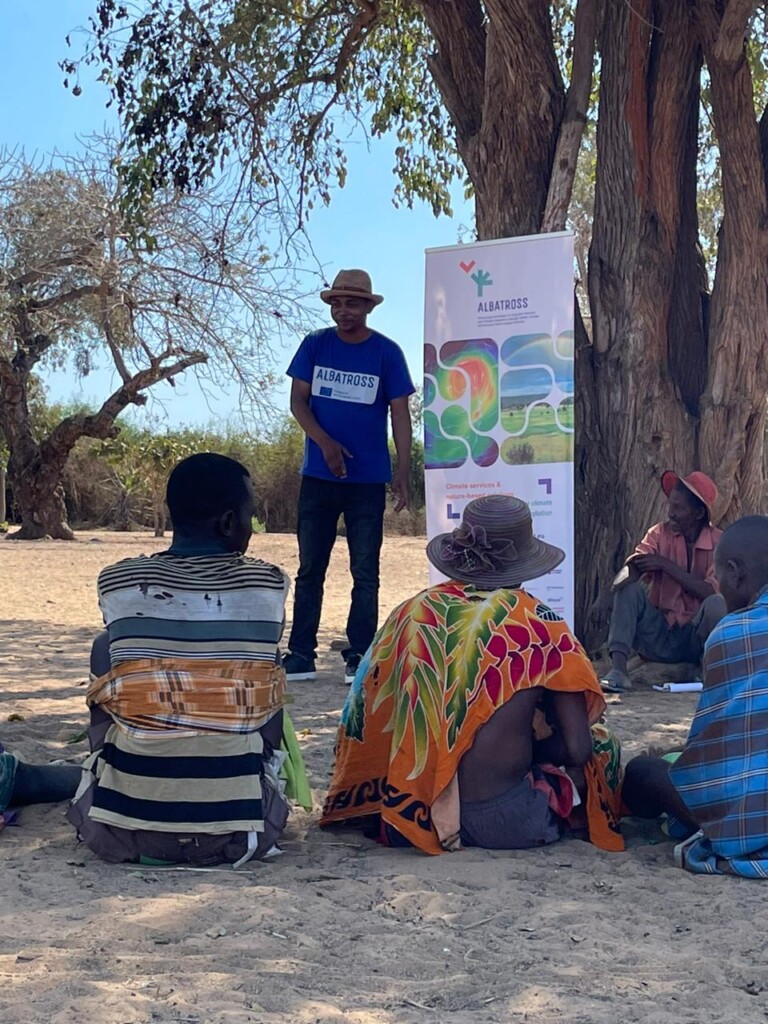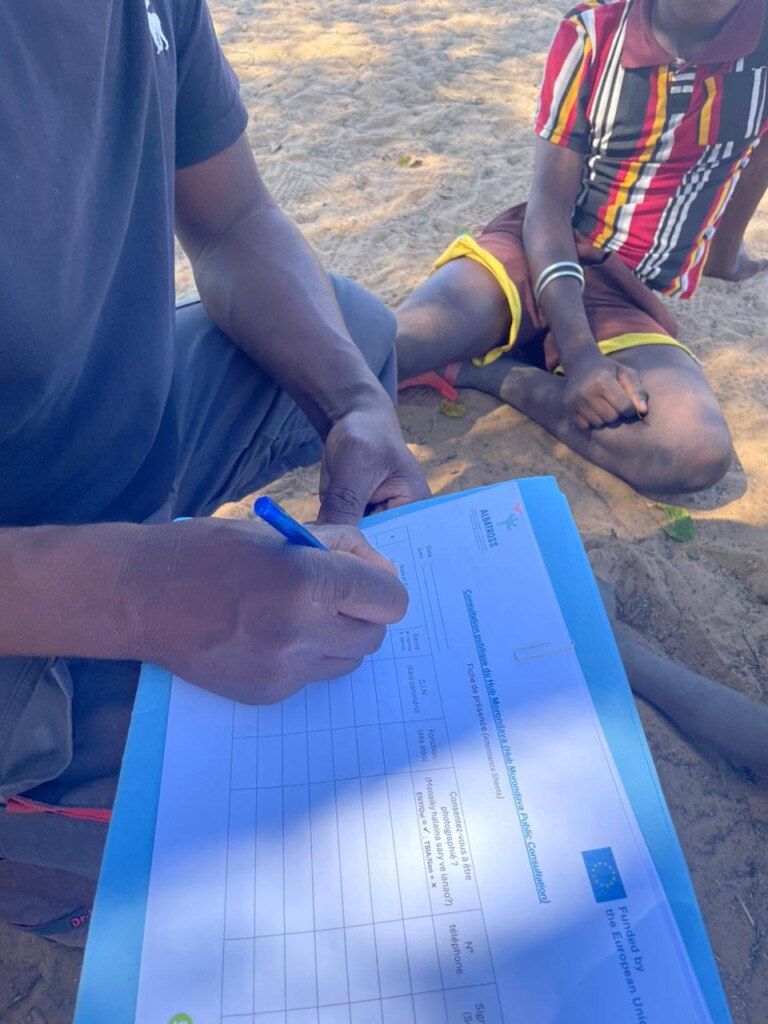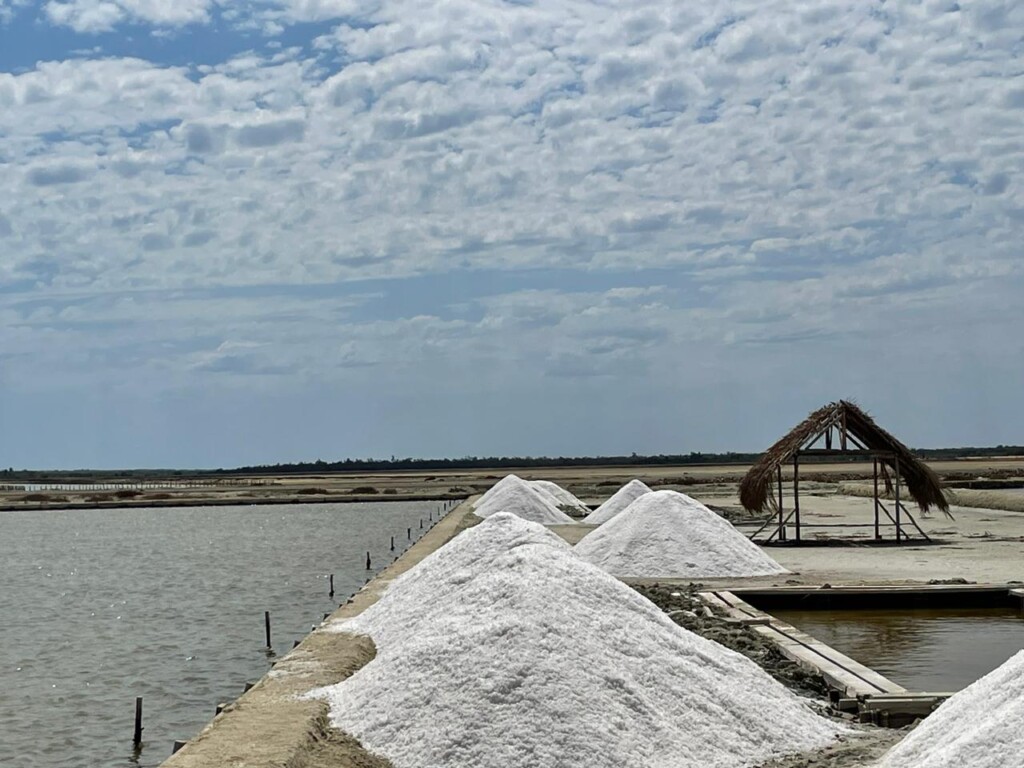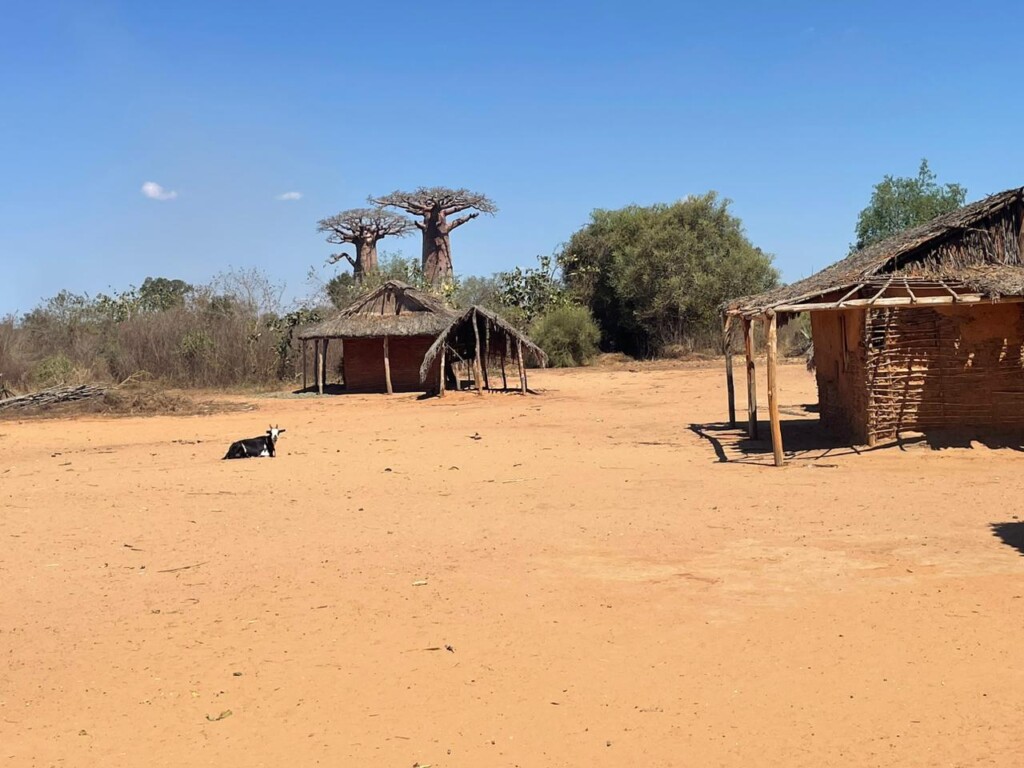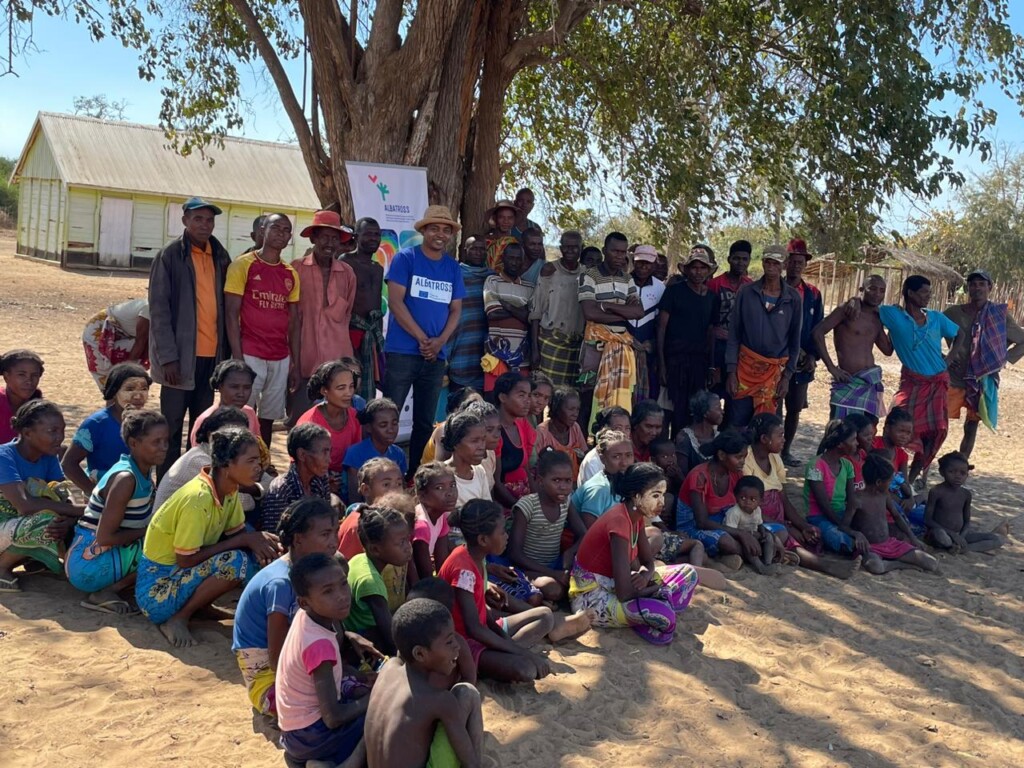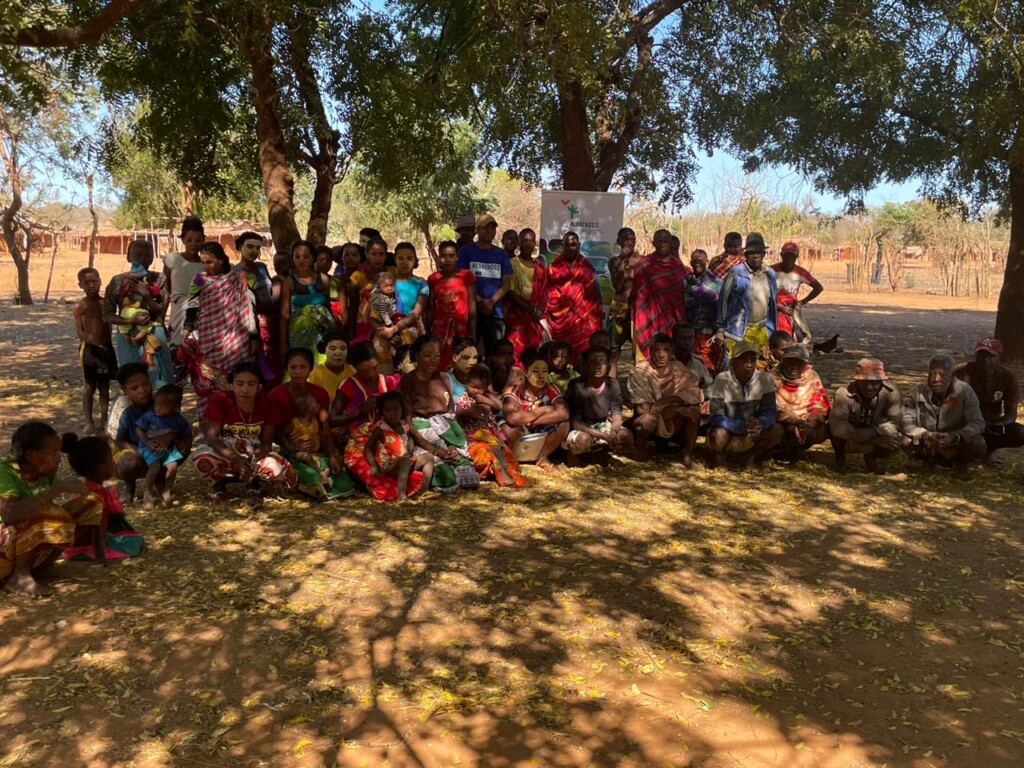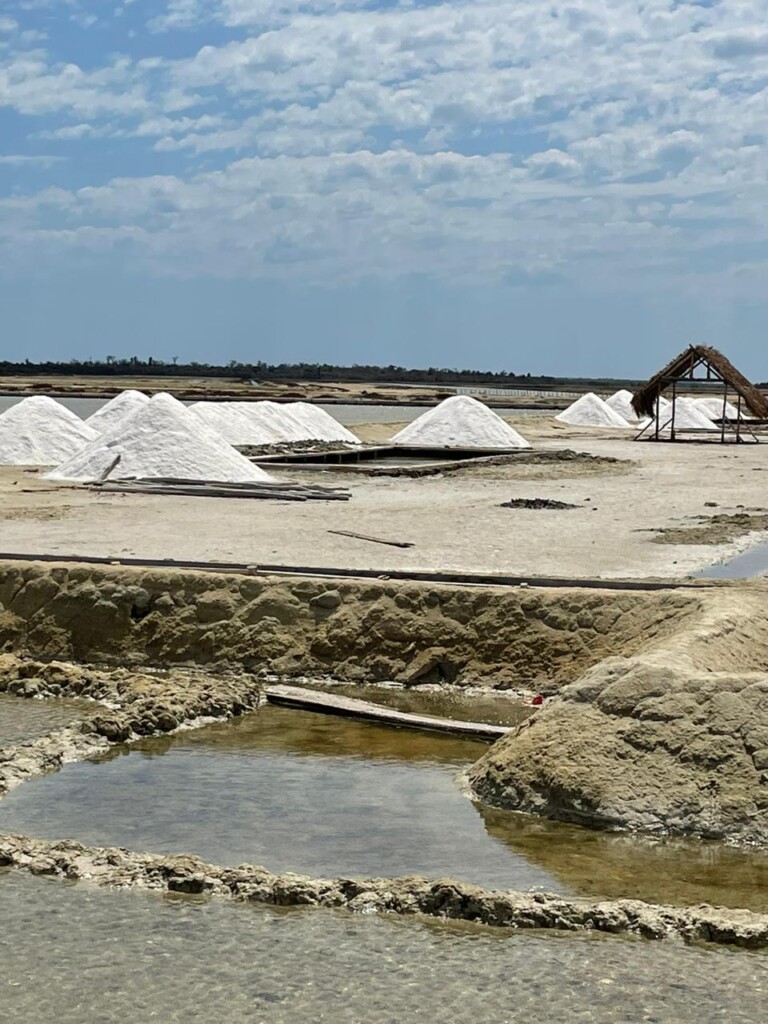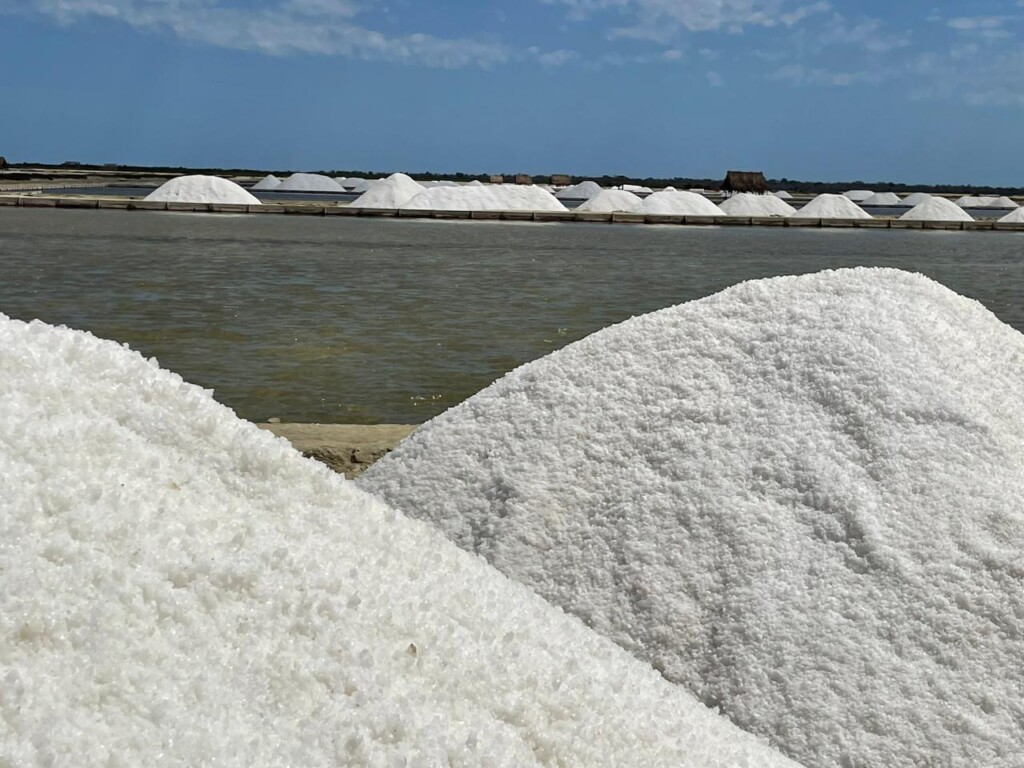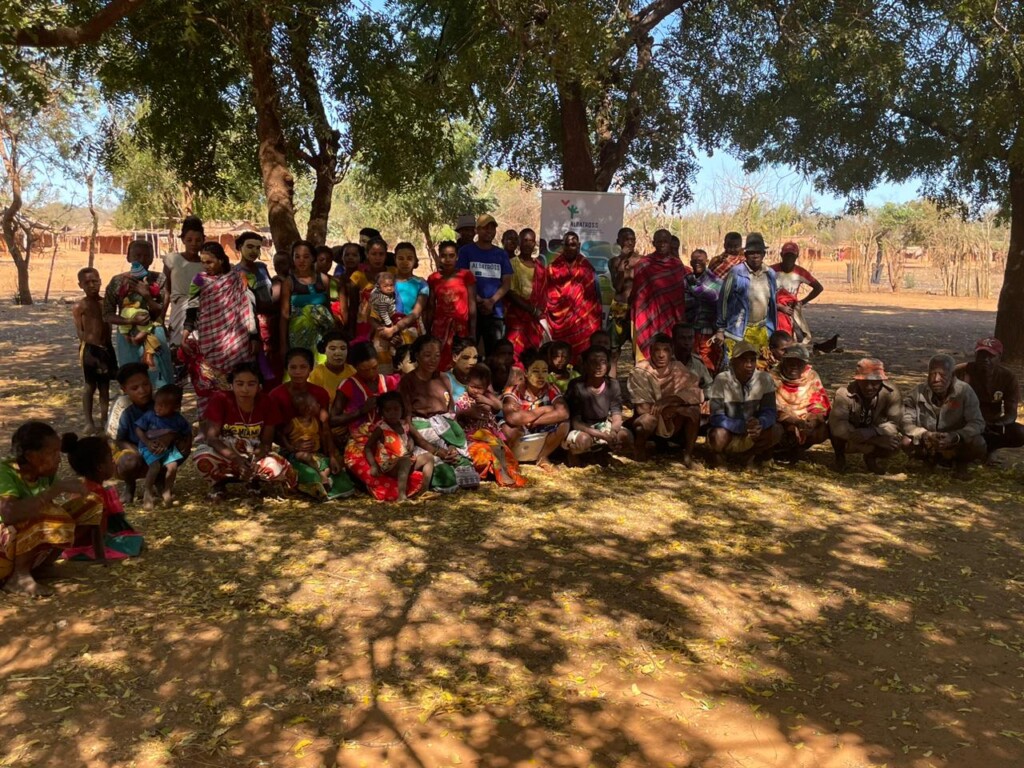ALBATROSS consults two climate-vulnerable neighbourhoods in Morondava Hub
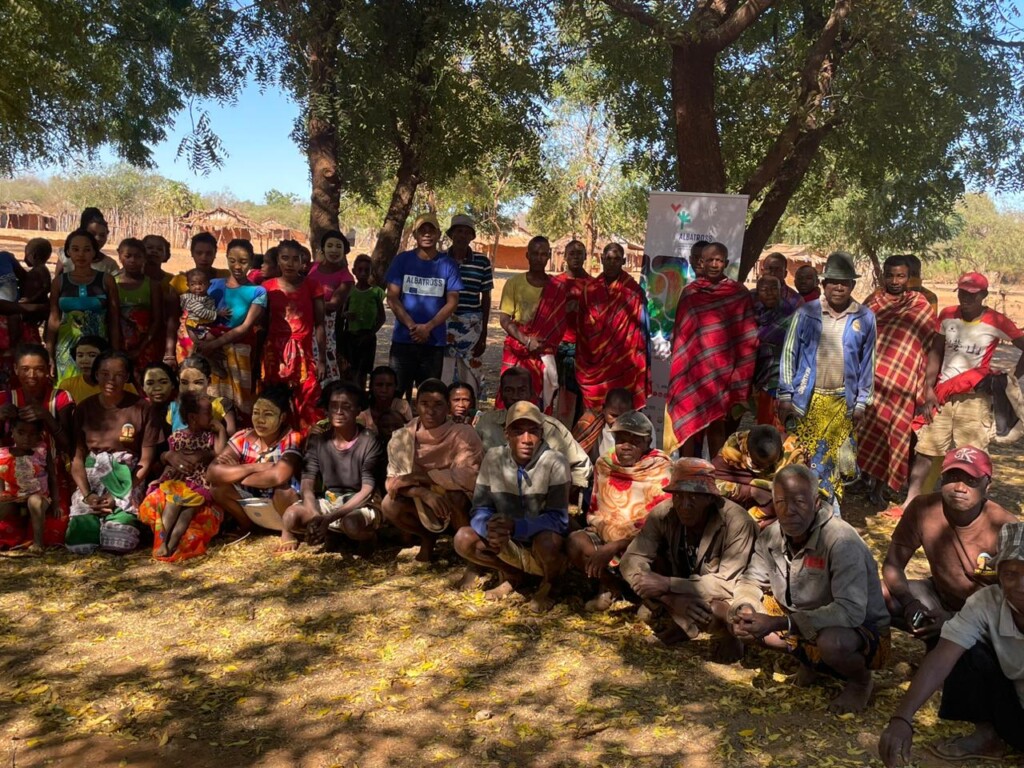
From 3 to 7 September 2024, the ALBATROSS partner Christian Monja (OXFAM South Africa) met local communities of two neighbourhoods in Belo sur Mer municipality particularly vulnerable to climate change in the Morondava Hub in Madagascar: Marofihintsy and Faratenina. This public consultation aimed to bring the ALBATROSS project closer to local communities directly affected by climate change’s negative impacts, to hear their voices and understand indigenous knowledge about climate services and nature-based solutions.
During the Hub Morondava kick-off meeting held in Morondava town on July 16, 2024, the local CBOs and the Mayor of Belo sur Mer mentioned some lists of villages vulnerable to climate change. These include the neighbourhoods of Marofihintsy and Faratenenina with a total population of about 2,000 inhabitants (source: community leaders), who live from agriculture in the rainy seasons and fishing in the dry seasons. Both villages are in Kirindy Mitea Nature Reserve within the focus areas of Hub Morondava. This is why these two locations were selected for public consultation. At the same time, the event was an opportunity to prepare the local communities for the next phases of the project so that they can fully get involved.
One day before the events, courtesy visits were scheduled to give the official community leaders an overview of the ALBATROSS project. It was discussed and agreed how best to gather the local communities. This included the optimal times of day for meetings, early in the morning and/or late in the afternoon to maximize participation, i.e. before and/or after their daily duties.
The next day, community leaders from both villages mobilized residents under the shade of large trees that serve as regular meeting places for local communities. Participants included elderly individuals, traditional and official community leaders, and single mothers with children. A total of 102 people participated including minors. Eighty of them were adults and 47.5% were women. The formal community leaders began by declaring that the activities were officially open. This was followed by a comprehensive explanation of the project in the local dialect to avoid misunderstandings. Open discussions were then held to capture their thoughts on the initiative and hear their voices on climate services and nature-based solutions. See below for details regarding each neighbourhood.
Marofihintsy neighborhood
Marofihintsy is a village in the south-eastern part of the municipality of Belo-sur-Mer. The population is estimated at 500 inhabitants (source: its community leader). During the open discussion, the following key points were discussed and emerged from the communities:
One male participant explained that before the climate was favourable for farming, they traditionally could predict the weather to make decisions to prepare their fields for the agricultural season. Due to the lack of climate-related information, people migrated to other areas of the natural reserve to explore new land, especially where there is abundant water. They travel up to 15 kilometres away, leaving early in the morning and returning late evening. Most of the time, they usually stay there for weeks until the new fields are ready for sowing. This migration puts pressure on the ecosystem as deforestation takes place despite the Madagascar National Park’s policies for managing the natural reserve.
The local communities suggested the restoration of the mangroves as a nature-based solution appropriate for the area. The degradation of the ecosystems is mainly due to anthropogenic and natural climate change (e.g. high salinity). On the other hand, it was mentioned that the restoration will generate income in four to five years. However, as this will take some time, it was pointed out that supporting the women in the village with vegetable cultivation (seeds) would meet their immediate needs, as the return of crabs, shrimps, etc. to the mangrove fields will take more than five years.
Faratenina neighborhood
Faratenina is a village located in the northeast of the municipality of Belo-sur-Mer. It has about 1,500 inhabitants (source: its community leader). The Maharivo River flows through the northern part of the village and has encouraged people to engage in agricultural activities for many years. Unfortunately, the flow direction of the river is becoming unpredictable due to climate change — the riverbed changes every year which affects the water supply to the fields. On the other hand, this change in the course of the river leads to siltation of the agricultural fields and forces the communities to migrate to other areas within the natural reserve. The community leader also specified that the Maharivo can only be used for about two months (January and February) as the river is dry the rest of the year.
Referring to indigenous knowledge about climate services, the deputy community leader also emphasized: “When the weather is cold and the horizon is cloudy at the same time and you see fog drip from the leaves of the trees every morning that can wet the ground, we know that it is time to start field preparations because it will rain very soon.”
At the end of each meeting, the local communities expressed their willingness to support the ALBATROSS project. They were then informed that the next phase would be to conduct the vulnerability and exposure assessment, in which their active participation is highly expected. At the events, it was also observed that the women of both villages were hesitant to participate in the discussions in the presence of men due to custom. In this regard, a gender policy empowerment should be developed before proceeding with this specific expected output to ensure that women’s voices are heard. In the end, the participants were encouraged to pass the news on to their neighbours.
